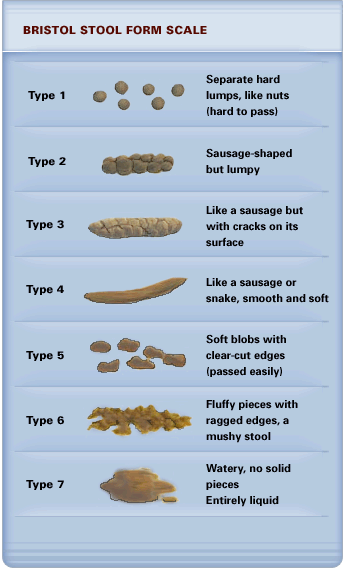|
|

|
|


Constipation And How It Effects The Colon Function
70 MILLION Americans suffer from constipation. The expression constipation is derived from the Latin word "constipatu"" which translated means to press or crowd together, to pack, to cram. Consequently, to be constipated means that the packed accumulation of feces in the bowel makes its evacuation difficult. However, a state of constipation can also exist when movements of the bowel may seem to be normal . . . in spite of an accumulation of feces somewhere along the passageways of the colon.
Many health authorities believe that constipation is the number one affliction underlying nearly every ailment . . . This means that constipation would be the most prevalent ailment affecting the civilized world . . . It is vital to stress that constipation affects the health of the colon, upon which the health of the body in its entirety depends.
Constipation contributes toward the lowering of body resistance predisposing it to many acute illnesses and the creation of a great many degenerative and chronic processes. Almost every human ailment has been attributed to a malfunctioning colon (i.e., one that cannot perform its normal, regular and efficient functioning).
Intestinal constipation causes cellular constipation It also increases the workload of the other excretory organs - kidneys, skin, liver, lungs and lymph .
The functioning of these organs becomes depleted and overworked. The cellular metabolism becomes sluggish, repair and growth are delayed, and the ability to eliminate waste materials is lowered. The cells - instead of being alive and active - become dead and inactive. This process results in a decline in tissue and organ functional ability.
There are two crimes against nature which civilization indulges in as a daily routine, which may be direct causes of constipation. One is the consumption of devitalized and refined foods, which fail to nourish the organs responsible for the evacuation of waste matter. The other which is most prevalent, particularly among young people, but no less so among the older and more mature . . . is neglecting to stop everything we are doing when the urge to evacuate the bowels should drive us headlong into the bathroom. Bowel movements every two or three days are considered normal and acceptable.
By opinion of many holistic health care professionals - we should have a bowel movement for every meal that we eat, each and everyday. For example, if we eat three meals per day, we should have three bowel movements per day.
If we are having less than two bowel movements per day, food residues are lying in the colon for more than twelve hours. Consequently, the fecal material in the colon becomes putrefied and fermented. Any nutritional elements present in the fecal matter would pass into the bloodstream as polluted products. What would otherwise be nutritional becomes in fact, the beginning of toxemia. Toxemia is a condition in which the blood contains poisonous products, which are produced by the growth of pathogenic or disease-producing bacteria. Pimples for example are usually the first indication that toxemia has found its way into the body.
A number of years ago fifty-seven of the leading physicians of Britain met in London and discussed before the Royal Society of Medicine this problem of autointoxication caused by a toxic colon. Autointoxication is defined as "the poisoning of the body, or some part of the body, by toxic matter generated therein."
The following twenty-two (22) poisons were identified as originating in a toxic colon.
Phenol Cadaverin
Agamatine Indol
Sulphurretted Hydrogen Cresol
Butyric Acid Botulin
Putrescin Urrobilin
Histidine
Ammonia
Muscarine Methylmercaptan
Methylgardinine Indican
Indoethylamine Sulpherroglobine
Ptomarropine Pentamethylendiamine
Neurin Sepsin
These are some of the many types of poisons, which can be found in a toxic colon. Some of these poisons are highly active and may produce the most detrimental effects- even in very small quantities.
In many cases, these toxins can seep out of the colon to poison the rest of the body .
Here are just a few examples of how these toxic poisons can affect your health:
- Weaken and stress your heart
- Go into your skin to cause blemishes and paleness
- Psoriasis, liver spots, wrinkles, and other facial conditions
- Irritate your lungs and cause foul breath
- Go to your brain and disturb mental function and cause senility
- Go into your joints and cause pain and stiffness
- Go into your muscles and cause weakness and severe fatigue
- Rob you of your youth, ruin your health and cause you to become old before your time.
FACTS
75% of Americans are chronically dehydrated.
In 37% of americans, the thirst mechanism is so weak that it is often mistaken for hunger
Even mild Dehydration will slow down one`s metabolism as much as 3%
One glass of water stopped midnight hunger pains for almost 100% of the dieters in a University of Washington study.
Lack of water is the #1 trigger of day time fatigue
Preliminary research indicates that 8-10 glasses of water a day could significantly ease back and joint pain for as mush as 80% of sufferers
A mere 2% drop in body water can trigger fuzzy short-term memory,troble with basic math and difficulty focusing on the computer screen or on a printed page
If solving the problem of constipation were merely a case of washing out loose material lying free inside any part of the colon, it would not be too great a difficulty to clear up the situation. A colonics would most likely be sufficient to take care of its removal. However, it is not so simple to dispose of this problem .
Constipation involves not only the unnecessary retention of feces in the bowel, but also the retention present throughout the first half of the colon, from the cecum to the middle of the transverse colon. The cecum is found next to the ileocecal valve at the beginning of the colon.
The wall of this section of the colon is equipped with sensitive nerves and muscles whose function it is to create wave-like motions - known as peristaltic waves - to propel the contents of the colon from the cecum to the rectum for eventual evacuation. This is a distance of approximately five feet.
Besides the formation of these peristaltic waves, the first half of the colon has two other very important functions. First, it must extract from the entire residue coming from the small intestine any available nutritional material, which the small intestine was unable to collect. For this purpose, it mulches the material, which passes into it from the small intestine and transfers the liquid and other elements through its walls into the bloodstream. The nutrition, which has thus been extracted from the colon, is collected by the blood vessels lining the walls of the colon and is carried to the liver for processing.
The other important function of the first half of the colon is to gather from the glands in its walls the intestinal flora needed to lubricate the colon. Far too many people, professional and laymen, think that enemas and colon irrigations wash out the intestinal flora and thus deprive the colon of a valuable means of lubrication .
This school of thought is utterly false and totally devoid of truth and fact. Obviously, when the packed accumulation of feces in the bowel leads to fecal encrustation, it is not possible for the lining of the colon to function normally, and the glands in this lining cannot produce the necessary intestinal flora or lubrication. Such lack of lubrication only serves to intensify a state of constipation and to generate toxemia.
   

 
|
|